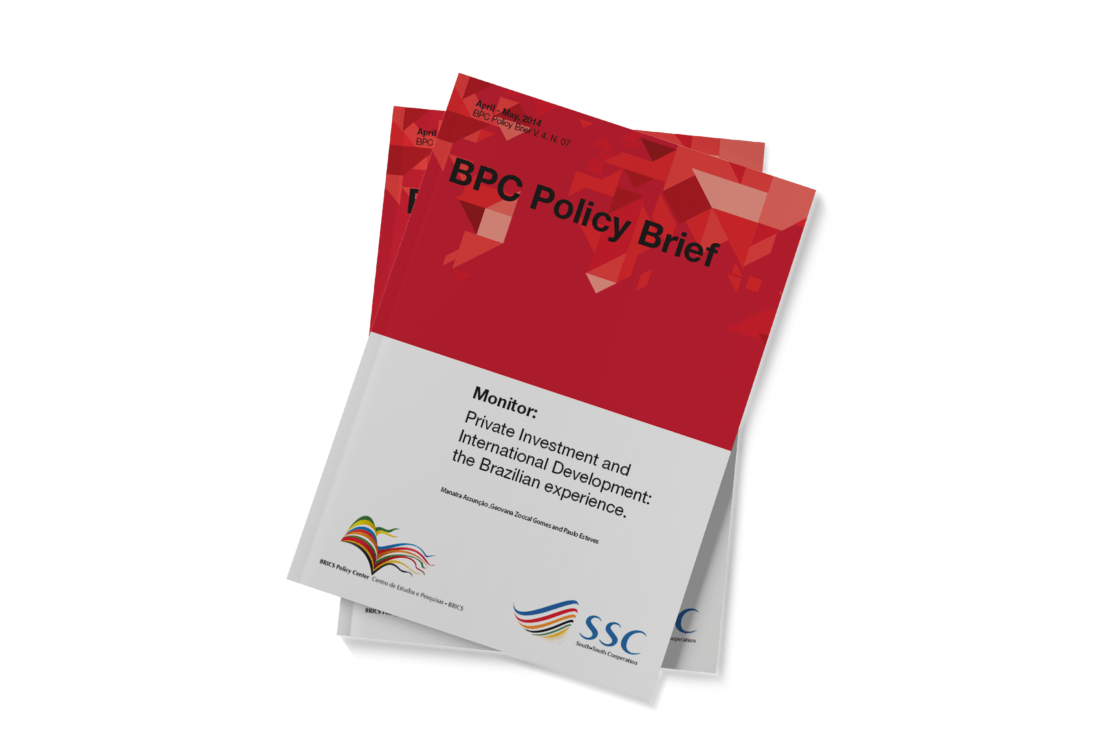
Private Investment and International Development the Brazilian experience
The new monitor “Private Investment and International Development: The Brazilian Experience” propose to analyze the increasing tendency that links development cooperation initiatives with private investment. The monitor analyses the wide gamut of roles which the private sector has taken and the possible impacts upon development and international cooperation, departing from two perspectives: One which identifies this association as ‘uncomfortable friends’ and the other one as ‘necessary partners’.
The private sector has been recognized as an equal partner with an active stake in development within the UN and the OECD. The Monterrey Consensus (2003) is seen as a milestone for these partnerships, emphasizing the significance of the private sector and raising funds for development cooperation. Funds coming from multilateral development banks alone increased from $5 billion to $40 billion between 2000 and 2010.
The Monitor also points out for the direct link of this relation with the context of the financial crisis and the political effects of emerging countries economic policies, especially those of Brazil, China and India, shifting focus back to the role of the state in fostering development, mainly through its economic and industrial policies. This perspective holds that, rather than ‘uncomfortable friends’, the private sector is a necessary partner. In this sense, the intersection with the private sector within the ‘aid community’ and South-South cooperation goes beyond the North and South divide.
Public and private agents from North and South recognize the centrality of private investment in fostering development. Nevertheless, economic growth does not necessarily lead to human and sustainable development. This intersection between private investment and international development raises two key questions: How likely are private sector interests to supersede international development goals? What are the odds of returning to or reinforcing conditionalities of aid? Thus the Monitor concludes that this highly unpredictable scenario brings up the need for control mechanisms and models to evaluate this intersection and prevent private sector investment from disguising as development initiatives.


